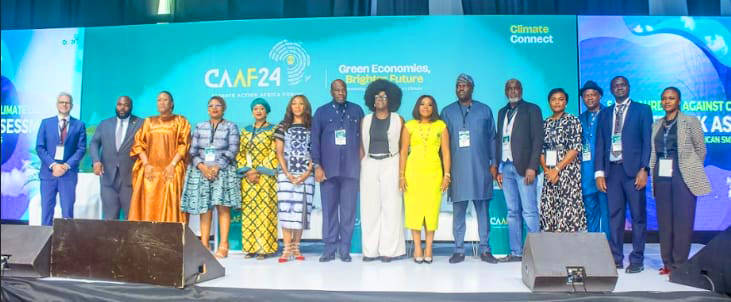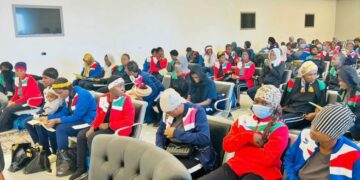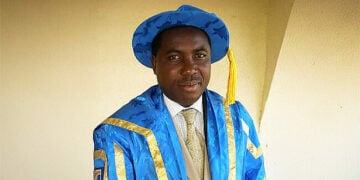Africa is disproportionately impacted by climate change, with over 900 million people in the continent lacking access to life-improving appliances, stakeholders have stated.
This is even as the federal government and other critical stakeholders, who converged at the 2024 Climate Action Africa Forum (CAAF), on Wednesday, in Lagos, have forged an alliance, in a bid to tackle climate related challenges.
The special adviser to the President on NEC and Climate Change, Rukaiya El-Rufai, said Africa is disproportionately impacted by climate change, even as she called on the need for critical stakeholders to forge partnerships that will fast-track the continent’s transition to smart climate development.
El-Rufai averred that economies are judged by net zero phase, while calling on companies to look towards achieving accelerated economic growth, by putting in place budgets to mitigate climate change.
Speaking on what the federal government is doing to tackle climate-related challenges, the special adviser said, the federal government is committed to the Paris Agreement, an international pact adopted in Paris in 2015 by 196 countries, including Nigeria, to combat climate change. “We have put in place policies like the Nationally Determined Contributions (NDCs) and Nigeria Green Earth Initiative, to minimise emissions and mitigate climate issues.
We are passionate about sustainable agriculture and we recently instituted a committee on flood, to mitigate future flooding in Nigeria,” she stated.
Themed: “Green Economies, Brighter Futures: Innovating and investing in Africa’s Climate-Smart Development,” the special adviser applauded the organisers of the 2024 CAAF, adding that the conference has provided a platform for stakeholders to have meaningful discussion, share expertise, showcase innovative technologies and forge partnerships that will fasttrack Africa’s transition to smart climate development.
In the same vein, the president, Afreximbank, Prof. Benedict Oramah, said, though Africa has contributed little to global emissions, there is a universal consensus that climate change adversely impacts the continent disproportionately.
“Africa is already experiencing widespread damage attributable to climate change, including prolonged drought, sea-level rise, coastal flooding and erosion, heavy rains and reduced food production. On the other side of the spectrum, Africa, as a continent, has the lowest rate of access to clean energy globally. For instance, over 900 million people in Africa lack access to life-improved appliances,” Oramah revealed.
Oramah who was represented by the director of project and asset based finance, Afrexim Bank, Ms Helen Brume, therefore urged Africans to leapfrog over outdated technology and practices, build resilient infrastructures and adopt innovative solutions for economic development, while also mitigating climate change.
The CEO, Climate Action Africa (CAA), Grace Oluchi Mbah, said Africa is warming nearly faster than any other region, with 130 million people at risk from rising sea levels, even as she unveiled CAA’s Billion Trees for Africa Initiative, an initiative aimed to address environmental degradation and enhance the ecological and economic resilience of African communities.
Recognising the critical role of investment in climate action, Mbah said CAA is supporting the Pan African Climate Action Fund. “With a $20 million initial investment fund, co-created by dedicated Africans, we seek to empower small growing businesses and startups in the energy, agriculture, circularity and transportation sectors.
“As we celebrate the vibrant innovations happening across our continent. Following the registration of over 800 innovators for the CAAF24 deal room, and the selection of outstanding projects for today’s pitch, we reaffirm our commitment to nurturing innovators and climate solutions through our new Pan-African Green Economy Program (PAGE). Created in partnership with IDEA AFRICA and the Founder Institute, PAGE aims to support 5,000 innovators across the continent by 2035,” she added.





